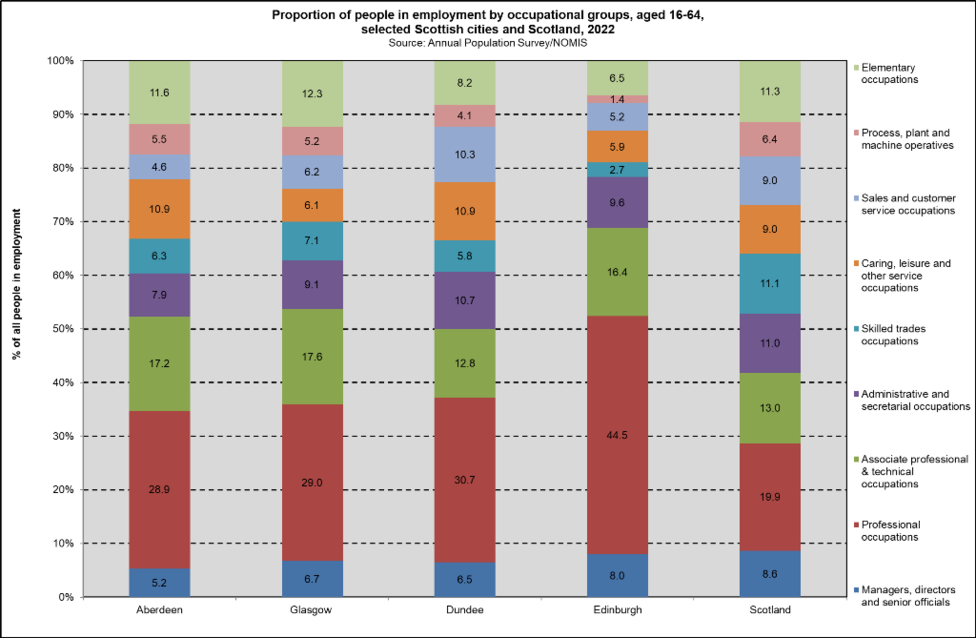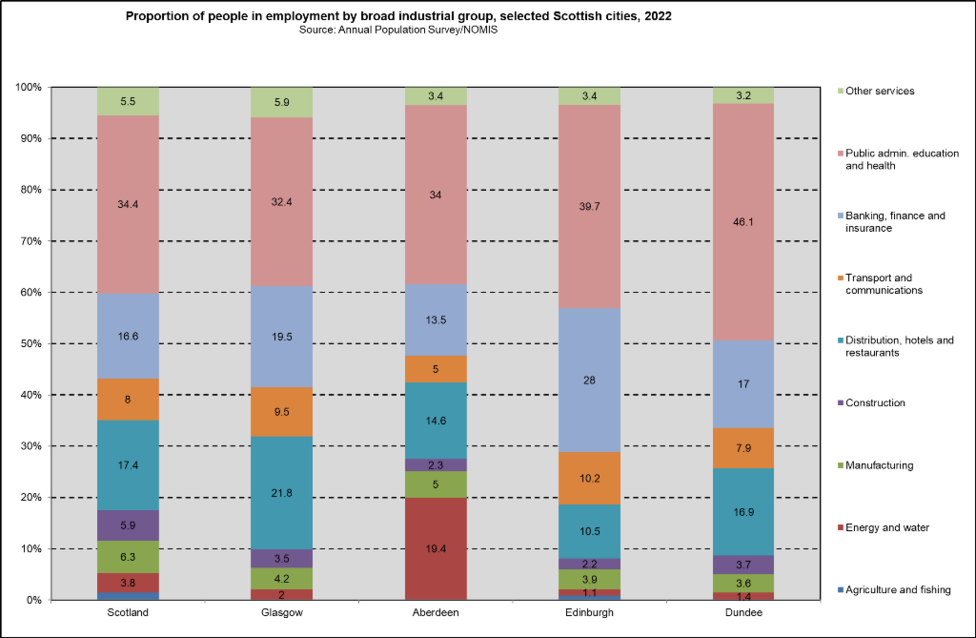Scottish cities
Proportion of people in employment by occupational group, aged 16-64, selected Scottish cities and Scotland, 2022
 The distribution of employment by occupational group differs between the selected Scottish cities. It is notable that Edinburgh has the highest proportion of people working in professional occupations (44%), while Glasgow has the highest proportion of employees in elementary occupations.
The distribution of employment by occupational group differs between the selected Scottish cities. It is notable that Edinburgh has the highest proportion of people working in professional occupations (44%), while Glasgow has the highest proportion of employees in elementary occupations.
Proportion of people in employment by broad industrial group, selected Scottish cities and Scotland, 2022 Employees working in public administration, education and health account for roughly one third of all employment in Glasgow (32%). The second-largest industrial group in Glasgow is distribution, hotels and restaurants (22%) and the third-largest is banking, finance and insurance (20%).
Employees working in public administration, education and health account for roughly one third of all employment in Glasgow (32%). The second-largest industrial group in Glasgow is distribution, hotels and restaurants (22%) and the third-largest is banking, finance and insurance (20%).
Notes
The definition of employment is anyone (aged 16 or over) who does at least one hour’s paid work in the week prior to their interview, or has a job that they are temporarily away from (e.g. on holiday). Also included are people who do unpaid work in a family business and people on government supported employment training schemes, in line with ILO definitions.
The headline employment rate is the proportion of the working-age population who are in employment. The working-age population comprises men aged 16-64 and women aged 16-59 and therefore takes account of the school-leaving age but does not align completely with the state pension age which is in the process of change and rising.
ONS occupation group definitions:
Professional occupations: (requiring) a degree or equivalent qualification, with some occupations requiring postgraduate qualifications and/or a formal period of experience-related training.
Elementary occupations: occupations classified at this level will usually require a minimum general level of education (i.e. that which is acquired by the end of the period of compulsory education). Some occupations at this level will also have short periods of work-related training in areas such as health and safety, food hygiene, and customer service requirements.
This page was updated in August 2023.
